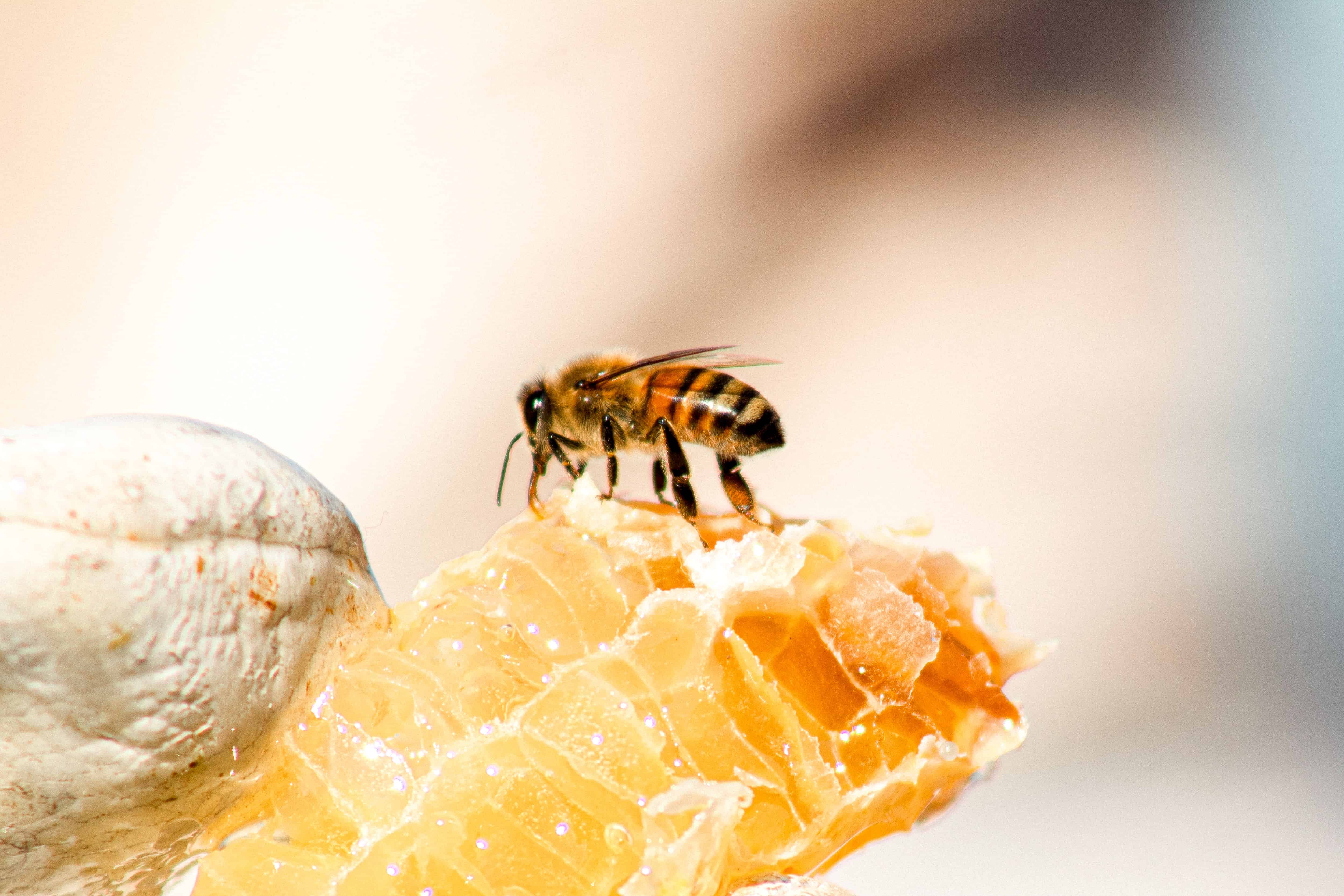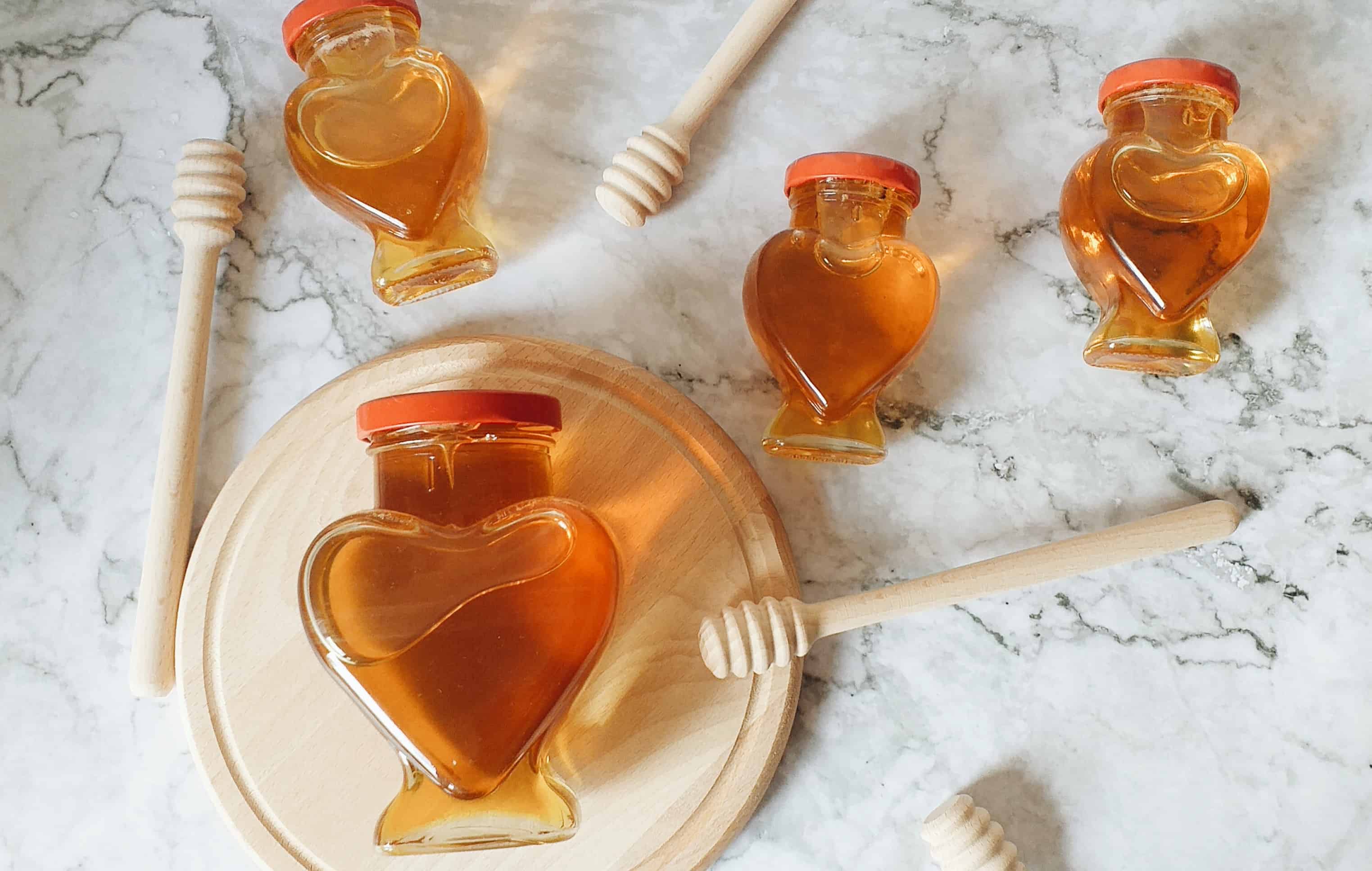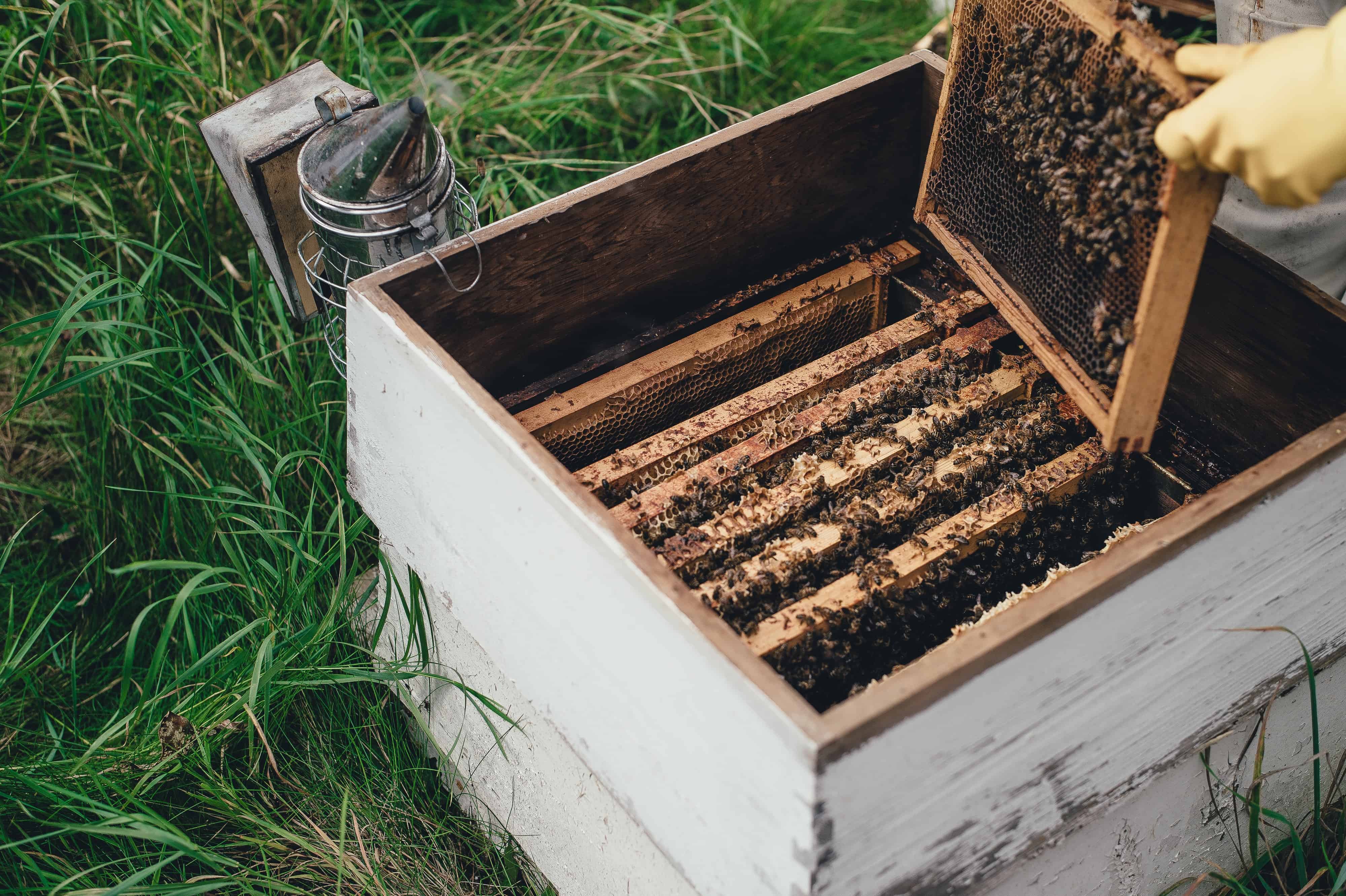Not only do bees make honey – they love and need to eat it! So, is it ethical for us to harvest honey for our benefit? And how many bees get killed in the process? Here’s the truth behind sourcing cruelty-free honey.
Honey can be considered cruelty-free if the beekeeper allows the bees to live in their natural state. This means that the bees are allowed to swarm and forage naturally, feed off their own honey through the winter months, and produce their own queen.
The way bees are treated on their farm and by their beekeeper will help you determine whether honey is cruelty-free or not. This article will divulge all the tips you need to know about sourcing ethical honey.
What is Cruelty-Free Honey?
When it comes to determining if a product is cruelty-free, the factors to consider are quite similar for a variety of products. This includes food, beauty, and personal care products. Let’s look at a few while focusing specifically on how it relates to honey.
How are the Bees Treated?
When it comes to honey, you need to know if the bees have proper food and shelter.
Like any other living being, they need to be allowed to live in their natural state for their product to be considered cruelty-free.
If the bees are not given the proper nourishment or feel stressed because of their living conditions, the resulting product would not qualify as cruelty-free.
Do the Bees Have Proper Food?
Bees must feed on their natural honey diet to thrive. Bees in a temperate climate should be allowed to forage freely early in the spring so they can collect enough honey to get them through the winter.
Beekeepers should hold off collecting honey until after the winter so the bees will have enough sustenance.
In some cases, commercial beekeepers start collecting honey in the fall and don’t leave enough for the colony to last the winter.
Do the Bees Have Proper Shelter?
They need to have an appropriate-sized hive that maintains a temperature of 90 to 95 degrees Fahrenheit (32-35 degrees Celsius).
If the bees live in a temperate climate, they should have a nest provided for them that is large enough and well-insulated.
The bees don’t need a nest created for them in a more tropical climate as they won’t have to deal with cold winter temperatures.
Are the Bees Allowed to Swarm?
A swarm of bees may sound a bit scary to anyone who has been stung by a bee. But in this case, the situation is not what it seems. Honeybees swarm to deal with overcrowding issues by splitting in two and developing a new colony.
The hive’s queen takes off during a swarm with half of the worker population. A new queen then stays in the hive with the remaining half of the worker bees.
The honeybee swarm moves on to find a new location to nest – they usually find places to rest along the way, possibly on shrubs or tree branches. The whole process typically takes up to a few days.
If you come across a swarm of honeybees, don’t be alarmed. They have a low incentive to sting unless provoked.
Beekeepers tend not to like it when their bees swarm because they lose half of the workforce from their hive, affecting honey production over the following weeks.
Commercial beekeepers attempt to prevent this natural swarming process by clipping the queen’s wings so she cannot leave her hive – which is undoubtedly not cruelty-free.
Suppose a beekeeper is mindful of the natural swarming process but doesn’t want to lose half of their bees and loss of honey production – they can opt to set up swarm traps like this reusable, environmentally friendly trap.
Swarm traps don’t stop the bees from swarming as nature intended. All they do is try to lure them into making their new home at the beekeeper’s location of choice.
Are the Bees Allowed to Produce Their Own Queen?
Producing a queen starts from the moment of birth when a young larva is fed a diet of “royal jelly” by the worker bees rather than the standard honey fed to the worker larvae.
Royal jelly is richer than honey, so it enables the young larva to grow into a fertile queen bee.
This is important because the queen bee is the only fertile female in the hive, and she is the only one capable of laying eggs. She is essential for keeping the population going!
Some beekeepers interfere with this process by artificially inseminating the queen. This painful process involves a syringe and harvesting her eggs.
Beekeepers create multiple queens to quickly increase their bee population, which throws off the course of nature amongst the bee colony.
With concerns about the shrinking bee population in the world, you may think this process would be helpful since it results in more bees.
However, as it goes against the nature of the honeybees, it produces harmful consequences, such as:
Common Issues with Bee Cruelty
Like any other farming industry, beekeepers do certain things to increase production and the money going into their pockets at the expense of the honey bees.
Although not all beekeepers are this unethical, you need to be aware that most commercial honey manufacturers will use these practices.
- Clipping the queen bee’s wings prevents her from flying and starting another colony elsewhere.
- Artificially inseminating the queen bee to produce more honeybees at a faster rate.
- Moving a queen bee which sparks all her worker bees to follow. Most of these bees don’t survive the journey or are killed in the new hive by whatever bees already live there.
Where Can I Find Ethically Sourced Honey?
It can be overwhelming when you walk into a store and see countless big bottles of honey in all different shapes, sizes, and varying prices.
But there are a few things you can do to ensure that the purchase you make is ethical.
Buy from Small, Local Farms & Farmer’s Markets
To find the most ethical honey available, seek out small, local farms.
They are more likely to practice cruelty-free beekeeping as they do not feel the pressure to produce as large a quantity of honey as the larger commercial farms.
Their honey tends to come in smaller batches since they allow the bees to produce it naturally without much human interference.
Farmer’s markets are one step up in the distribution chain and sell honey directly sourced from small, local farms that practice ethical beekeeping.
Look Out The Words “Pure” & Ultra-filtrated
“Pure” might sound appealing, but it means nothing when it comes to how beekeepers make honey or whether it’s more ethical or healthier for the bees.
And if you see the word “ultra-filtrated,” you might as well just drop the jar and walk straight out of the shop.
You want to look for the words “True Source Certified,” which means that the company voluntarily hired a third party to trace the honey’s origin.
There are a few keywords that, while not always guaranteeing they are cruelty-free, do increase the likelihood of it being ethically sourced honey:
Avoid Cheap Honey
We all love a good bargain. And when you see a big bottle of golden honey that’s surprisingly cheaper than anything else on the shelf – the chances are that it wasn’t extracted ethically.
In this case, the higher the price tag – the more care and concern went into extracting the honey ethically.
When farms make honey on an industrial scale, it probably uses cheaper conventional extraction methods that harm the bees.
Stay Clear of Imported Honey – Buy Local
If you can find locally-made and organic honey – that’s the ultimate win!
Locally-made ensures that the honey hasn’t traveled miles, which adds to its carbon footprint and makes it far less sustainable.
Organic proves that the bees forage naturally on organically grown flowers.
Unfortunately, not all countries have certified organic honey, like the U.K. However, it’s still possible to visit small farms that make honey on organically managed land.
Find Ethical Honey Suppliers Online
If all else fails, you can get on the interweb and buy your honey online, where you can read the fine print of precisely what you’re sourcing.
While you can purchase any type of honey online, cruelty-free or not, you can empower yourself by knowing what to look for on the product labels and descriptions.
Some of the Best Ethical Honey Brands
If you’d like some more suggestions for cruelty-free honey brands, check out this list that ranks the ethical and environmental records of 28 honey brands.
Questions to Ask a Beekeeper or Farm
The benefit of purchasing honey directly from a farm or at a farmer’s market is that you can ask questions to determine if the honey you are buying is cruelty-free.
If you have the opportunity to speak with someone directly about the origins of the honey you are considering purchasing, here are some questions to ask:
Do Vegans Eat Honey?
By definition, honey is not vegan. The term veganism was spread by Donald Watson in 1944, who said,
‘Veganism is a way of living which excludes all forms of exploitation of, and cruelty to, the animal kingdom, and includes a reverence for life.
It applies to the practice of living on the products of the plant kingdom to the exclusion of flesh, fish, fowl, eggs, honey, animal milk, and its derivatives and encourages the use of alternatives for all commodities derived wholly or in part from animals.’
So what is the vegan honey debate about?
On the one hand, many vegans believe it is cruel to harvest honey because it exploits the bees’ hard work.
Honey is essential to a bee’s survival and not to ours. This is also what the radical animal rights organization PETA believes.
On the other hand, the debate sparks controversy because bees make honey in excess. Some vegans will say that using the excess honey does not affect the bees badly.
And, of course, bees are not technically animals; they are insects. So if you continue to kill flies and mosquitos – what is the difference with bees?
The only concern with taking the excess honey that bees make is that the colony makes it for safekeeping until the winter months, when supplies might be scarce.
From our perspective, honey, beeswax, royal jelly, or other bee products are not considered vegan – but the debate remains open.
Is Honey Considered Sustainable?
It might sound contradictory since making honey is a natural process – but it is not considered sustainable for several key reasons.
Recommendations for Cruelty-Free Honey
Honey can be cruelty-free as long as the beekeepers ensure the bees’ quality of life standards are met.
They must allow their bees to live in the most natural state possible without interference with their food supply, queen selection process, or swarming ritual.
The biggest concern with commercial bee farming is that it subjects bees to cruelty, exploits their hard work, and is highly unsustainable because it:
So if you want to buy cruelty-free honey that doesn’t cut corners in mass production – you need to sacrifice affordability to get high ethical standards.
Ensure any honey you want to buy has a clear label stating that it’s “True Source Certified.”
Checking to see that it is also raw, unfiltered, organic, or biodynamic increases the chances of being ethically sourced.
If you can’t find ethical honey, you can order it online. Alternatively, if it is too expensive to buy ethical honey, you can opt for vegan alternatives like date, brown rice, or maple syrup.



